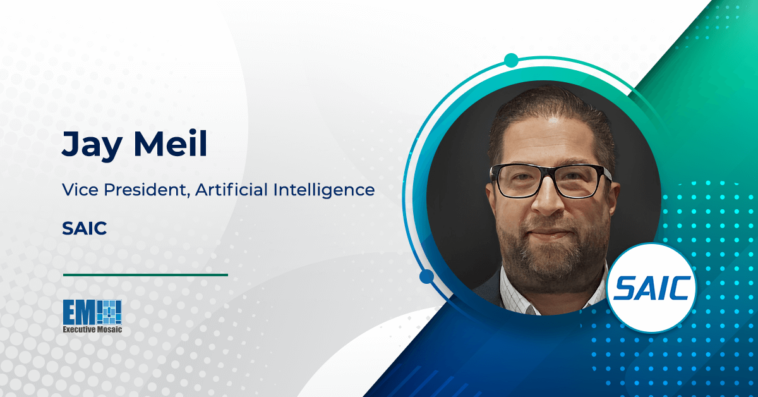Jay Meil, vice president of artificial intelligence at Science Applications International Corp., said training the “human element” to trust and operate models through data science literacy is the biggest challenge to the adoption of artificial intelligence in denied, disrupted, intermittent and limited impact environments, FedTech Magazine reported Friday.
“Being able to invert and essentially understand, back to raw data, how the system is making decisions increases the trust levels,” Meil said. “Increasing the trust level increases adoption, and then adopting it is going to help achieve the mission.”
According to the publication, SAIC has developed an interface that enables warfighters to explore data using built-in AI models that produce visuals and is working with the U.S. Navy, U.S. Marine Corps and combat commands to bring the capability to mission owners.
“We’ve actually found that the inference gets better, the models sometimes get better and they’re faster at learning these things because they understand the mission better than the data scientists, the data engineers and the software engineers,” Meil stated.
The SAIC executive also talked about ways to mitigate operational security threats at the tactical edge as soldiers train AI and machine learning models in DDIL environments.

Meil will participate in a panel discussion at the Potomac Officers Club’s 2024 Intel Summit on Sept. 19. Register here to attend this key in-person event.





